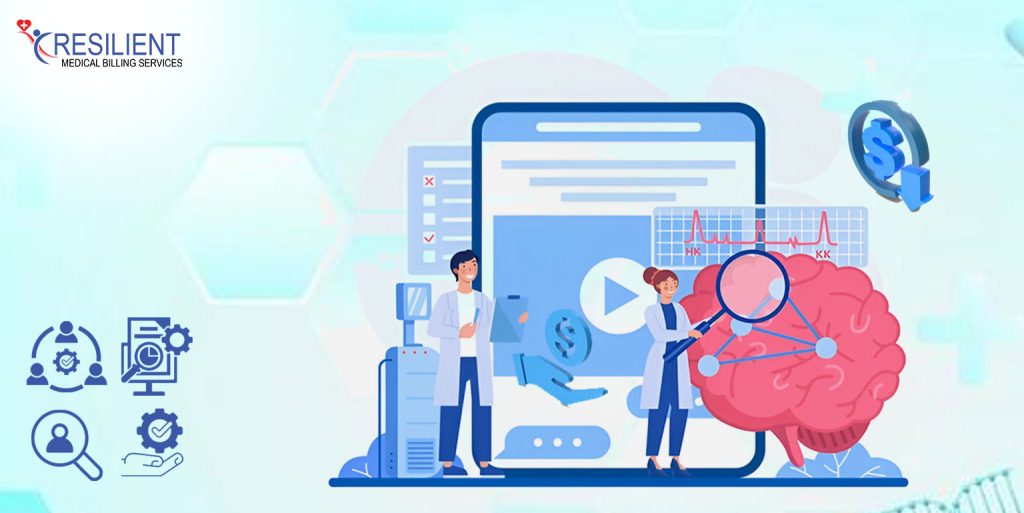The management of the flow of revenues is one central essential process of all healthcare organizations. This includes all the services that are financial in nature with interaction of a patient, including appointment, insurance check up, billing and claims. This therefore implies that in order to ensure patients get the best out of their health care needs; payments are done without delay, and overall financial position is well coordinated; there is the need for a well and sound RCM system. Such headwinds, such as rcm challenges like late payments, and denied claims hinder the achievement of these goals hence the need for RCM as a tool for assessing and performing a healthcare business.
Research shows that the denials of healthcare claims range between 5-10%. It can cost as much as 118$ per claim to manage these denials
Why Is Optimizing Revenue Cycle Management Important?
It is important to improve revenue cycle management to keep the cash flow steady, cut down on denied claims, boost business efficiency, and stay in compliance. Optimized revenue cycle management helps healthcare workers do better with their finances, make better use of their resources, and give better care to their patients.
Healthcare companies lose over $262 billion a year because of denials. This shows how important it is to deal with these problems. This blog talks about the most important revenue cycle management for medical billing challenges, starting with one of the most important problems that is insurance claims being denied or rejected.

1. Insurance Claim Denials and Rejections
Insurance claim denials and rejections remain one of Revenue Cycle Management challenges. The average claim denial rate for healthcare providers is 5% to 10%, which can result in significant income loss if not addressed immediately.
In addition, claims for services not covered by a patient’s insurance plan often be rejected, and claims received after the insurer’s deadline are automatically rejected owing to timely filing constraints.
Denied claims actually deny legitimate claims and slow cash flow, drive up costs, and stall changes in patient care. To address this, healthcare providers must provide proper pre-billing checks to ensure that patients are appropriate candidates to file for insurance reimbursement, educate them or their employees regarding proper coding techniques, rules and usage of RCM technology which clean up claims in real-time and provide relevant data easily for analysis.
2. Patient Payment Collections
The healthcare industry is increasingly facing revenue cycle management challenges in collecting patient payments. Many patients struggle to understand their financial responsibility, leading to delayed or missed payments. For providers, this can result in significant financial strain, making it crucial to address these challenges effectively.
Transparent billing processes are a cornerstone of improving patient payment collections. When patients are clearly informed about their financial responsibilities upfront, they are more likely to pay on time. This transparency fosters trust, reduces confusion, and minimizes the likelihood of disputes.
Additionally, patient education plays a vital role in bridging the gap between providers and patients. Explaining insurance coverage, payment expectations, and financial assistance options can empower patients to manage their healthcare expenses proactively.
3. Evolving Regulatory Compliance
Healthcare rules change frequently, challenging providers. Managing ICD-10 code updates, HIPAA standards, and payer-specific criteria takes time, resources, and expertise. Costly penalties, denied claims, and provider reputation damage can result from violating these requirements.
Maintaining compliance with new requirements requires proactive staff training, frequent audits, and updated coding and billing software. Many doctors find the cost and effort of these duties onerous, detracting from patient care.
Here comes the revenue cycle in healthcare management (RCM) solutions. Comprehensive RCM systems integrate compliance into daily operations. The systems automatically update regulatory changes, eliminate claims filing errors, and identify opportunities for improvement.
4. Inefficient Use of Technology
Revenue cycle management (RCM) inefficiencies caused by outdated or poorly linked systems can hurt healthcare companies’ finances. Legacy systems that don’t interface with other platforms cause data silos, mistakes, and claims processing delays for many providers. These issues can increase denials, reimbursement delays, and revenue loss.
Tools like data analytics and automation are transforming revenue cycle management challenges by streamlining operations and optimizing revenue cycles. Data analytics helps providers make decisions by revealing financial trends, claim patterns, and opportunities for improvement.
The use of technology decreases manual errors by handling repeated operations including claim submissions, payment posting, and rejection management. These technologies make efficient revenue cycle processes
5. Lack of Skilled Workforce
Problems of staff shortages and increasing invisibility of candidates with practical experiences in RCM present the healthcare providers with challenges that they can hardly overcome. Educating people to deal with shading, coding, as well as other rules, takes time, energy and money. Due to a competitive employment market the firm struggles with trying to retain its experienced employees, with this leading to many cases of turnovers and other operational issues.
According to research, claim processing and income decline because of insufficient personnel. Some problems include; increased claim filing errors due to lack of enough staff and hence claim denial and delayed reimbursements. Healthcare organisations have trouble managing their cash flow that reigns over financial viability.
Staff training and professional development must be prioritised to solve these revenue cycle management challenges. Offering educational programs and certifications not only improves employee retention but also ensures that teams stay up-to-date with the latest industry standards.
Benefits Of Revenue Cycle Management
- Improved Cash Flow: Secures the on time preparation and making of claims.
- Reduced Denials: Reduces the input inaccuracy due to correct coding techniques and pre billing audit.
- Operational Efficiency: Neutralizes repetitive functions, thus cutting down on paperwork.
- Better Compliance: Complying with all rules and payer rules and regulations.
- Enhanced Patient Experience: Eliminates the problem area of billing and minimizes the confusion with finances.
- Actionable Insights: RCM offer data analysis for operations enhancement and profitability improvements
Final Words!
Receiving and collecting money for patients’ healthcare bills and other revenue-related issues must be managed by health organizations to maintain organizational financial balance and effectiveness.
Efficient RCM decreases the amount of time spent, errors occurred and guarantees every dollar is collected on time; therefore, improving healthcare revenue.
Revenue cycle management can be the reason behind your headaches within your healthcare organisation, but Resilient MBS’s approach can be the cure. Our clients get targeted advice on revenue cycle, or improvement of the successive steps and instruments to receive the maximum possible revenue.
No longer should Revenue cycle management challenges threaten your organizations potential for financial stability and operational excellence, work with Resilient MBS today!










